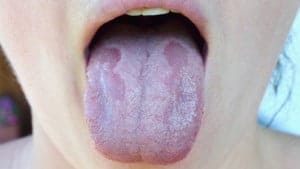Biotin, or B7, might be one of the least discussed of the essential vitamins. Most have heard that it’s beneficial for you, but they know little about it. In fact, you may be vaguely aware of a few of its practical uses.
But few know the full extent of all this vitamin can do to contribute to our general wellness.
For instance…
Are you aware that B7 has at least ten proven healthful benefits? Did you know it can be useful for a variety of reasons, from improving your nail strength to helping regulate a diabetic’s blood sugar?
B7 is one of those nutrients that’s readily available if you eat a balanced, healthy diet, but deficiencies may lead to a variety of troubles. We’ll take a look at B7, how it works, and its uses.
What Is It?
Biotin is one of the B-complex vitamins. They’re essential to your health and well-being for everything from physical processes to your mental and emotional health.
It plays a massive role in keeping your digestive, metabolic, and nervous systems healthy. It helps the body metabolize carbohydrates, fats, and proteins. The body uses it to convert food into energy. It’s a critical component of enzymes that work to metabolize fatty acids, glucose, and amino acids. It also plays a significant role in regulating genes, histone modifications, and cell signaling.
As a water-soluble B vitamin, the body doesn’t store it or. That means daily intake (through diet) is necessary.
People generally can get the B7 they need through eating a healthy diet. You don’t need all that much daily to function. That works out to be between 30 and 35 micrograms (mcg) per day, though Western populations may take in as much as 70 mcg. You will generally hear that taking too much won’t have any adverse effects since it’s water-soluble.
Actual B7 deficiencies are relatively rare because intestinal bacteria tend to produce more than what the body requires. Specific populations of people may have higher requirements. Pregnant and breastfeeding women are among those.
Rarely, some people suffer an inherited condition in which their body cannot correctly process the vitamin. It’s called biotinidase deficiency. This is a recessive metabolic disorder in which your body does not release B7 is not released via normal cellular processes. In extreme cases, the patient may suffer from seizures, weak muscle tone, breathing troubles, vision or hearing loss, and susceptibility to candidiasis, a fungal infection. Someone suffering from this condition may require taking extra supplementation.
Hair Health
Many people mistakenly believe that this B vitamin promotes increased hair growth, and stronger, healthier hair. This myth may very well be nothing more than a marketing ploy aimed at shampoo consumers, as there is very little evidence to support this.
Vitamin B7 deficiency does, however, decrease the rate of hair loss and thinning hair. People diagnosed with biotin deficiency have been shown to benefit from B7 supplementation. In 2015, a study showed that women who had experienced thinning hair had a reduction in shedding after taking an oral marine protein supplement that included B7 for three months.
Nail Health
Many people commonly suffer from brittle nails. Their nails chip easily. They also are weak and can split or crack. Biotin can play a role in improving the strength and durability of fingernails. One study found that out of 45 patients taking a B7 supplement (2.5 mg per day), 91% of them exhibited “firmer and harder fingernails” after five months. Other, smaller studies have consequently been done showing similar results.
Skin Health
Deficiency of the B vitamin, B7, can lead to red, scaly skin rashes. It’s also been implicated in the condition, seborrheic dermatitis.
Doctors believe that the B vitamin’s link to skin health may be related to its role in fat metabolism, which is essential to the skin. When the vitamin is lacking, this process may be impaired. When a deficiency is suspected, you may benefit from supplementation.
Pregnancy and Breast Feeding
The body’s requirements increase during this stressful time. On top of that, B7 breaks down in the body much faster during pregnancy. It’s thought that approximately 50% of pregnant women may develop a mild form of deficiency. This could be a cause for concern, as some studies have revealed B7 deficiency during pregnancy could cause congenital disabilities.
Your doctor may recommend supplementation with folic acid before and during your pregnancy. Most prenatal supplements contain adequate amounts of both folic acid and B7.
Diabetes
Diabetes is a metabolic disease that manifests as impaired insulin function, and subsequent high blood sugar levels. Given B7’s close relation to the body’s production of glucose, the correlation is no surprise. There are a few studies that have shown that people with diabetes may have lower levels of the B vitamin in their system when compared with healthy individuals.
Multiple controlled studies have shown lowered blood sugar levels in some people with type 2 diabetes when B7 is supplemented along with the mineral chromium by stimulating the secretion of insulin from the pancreas.
Multiple Sclerosis
It’s thought to play a big part in the production of myelin, the protective sheath that covers nerve fibers in the brain, eyes, and spinal cord. In a study treating patients with a progressive form of multiple sclerosis with high doses of B7, over 90% showed some degree of clinical improvement.
High doses may help to improve vision and reduce partial paralysis in some people. Other studies are currently underway that are showing more promising results.
Neuropathy
This B vitamin is essential for the function of pyruvate carboxylase, an enzyme involved in protein metabolism. When things aren’t in working order, high levels of pyruvate and aspartate may negatively affect the nerves.
Diabetic patients suffering from neuropathy as a result of dialysis may get some relief with supplementation. Early studies involving small patient numbers showed that patients taking a high dose of biotin for one to two years saw an improvement in their symptoms.
Basal Ganglia Disease
Basal ganglia disease is a rare, inherited disorder that affects the part of the nervous system that controls movement. Those suffering from it can experience involuntary tensing of muscles, muscle rigidity, muscle weakness, and even some episodes of altered mental state.
Early research shows that taking thiamine plus B7 together may shorten the length of the episodes when they hit.
Alcohol Abuse
Chronic alcohol use can do a number on the body. Among the damage, the intestines may not be able to properly absorb B7, leading to a significant reduction in plasma levels.
Those people may be suffering from a vitamin B7 deficiency and could benefit from taking a supplement.
Cigarette Smokers
Cigarette smoking has been shown to accelerate B7 catabolism, or degradation, in women, leading to lower levels of B7, which could lead to tumors. If you’re a long-term smoker, it may be a good idea to have a conversation with your doctor about supplementing your Vitamin B.
Where to Find It
Most people get enough B7 through the course of their day by eating a variety of foods rich in the B vitamin source, so a true deficiency is rare.
Foods that are particularly high in the vitamin include:
- Yeasty foods
- Cheese
- Leafy greens
- Mushrooms
- Meats of organs like liver and kidney
- Egg yolks
- Legumes like peanuts and soybeans
- Cauliflower
- Nuts like almonds, pecans, and walnuts (and nut butter)
- Wheat bran
- Oysters
- Sunflower seeds
- Whole grains and cereals
- bananas
- Many other fruits and vegetables also contain at least a small amount
Food processing may render vitamin ineffective. So if you’re concerned about your intake, then you should consume unprocessed, organic foods.
The bacteria that make up your intestinal flora also produce it through the normal process of digestion.
Can You Take Too Much Biotin?
There is no evidence linking high levels of B7 supplementation with any form of toxicity. As a water-soluble vitamin, your fat cells do not store it for later use. Thus, you’ll excrete any unused excess in your urine.
Another downside to taking in too much of this vitamin is it may skew laboratory testing results, which may lead to inaccurate treatment plans or misdiagnosis of a medical condition.
Additionally, the vitamin could interact with certain medications. That means that you should consult your doctor before taking any supplementation if you are concurrently also taking prescription medications.
Some medications, such as anticonvulsants, can negatively impact levels, so monitoring through your doctor may be recommended.
Final Thoughts on the Healthful Benefits of Biotin
Biotin is an essential nutrient for many of your body’s functions. It connects closely with protein metabolism, glucose synthesis, and other processes.
Scientists continue to conduct more research. They hope to strengthen the premise that taking B7 in some instances can prove beneficial in alleviating many common problems. In the meantime, it’s never a bad idea to eat a well-balanced diet, potentially alleviating the need for supplementation.



















